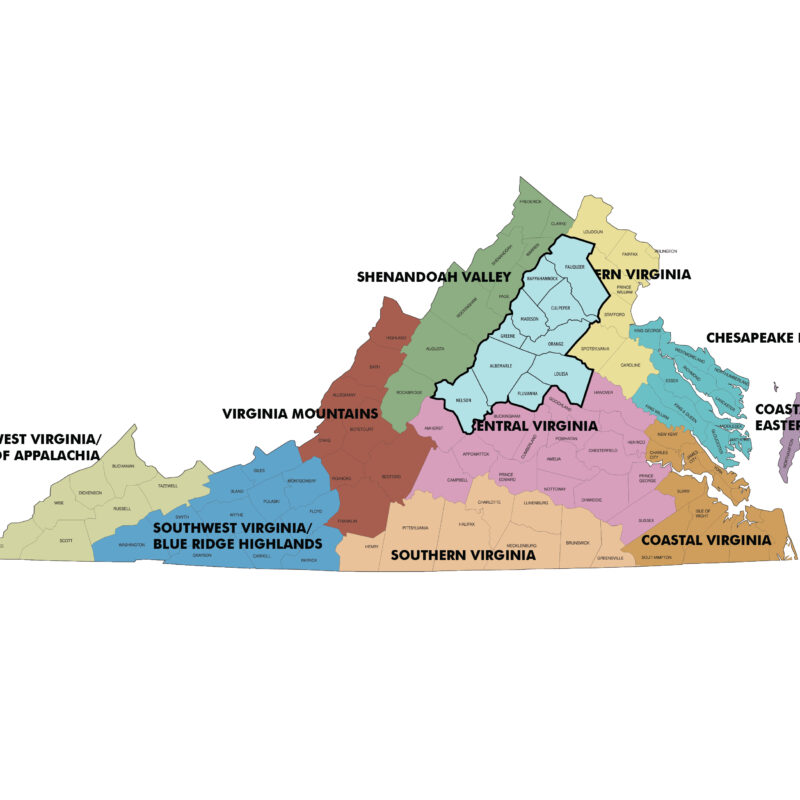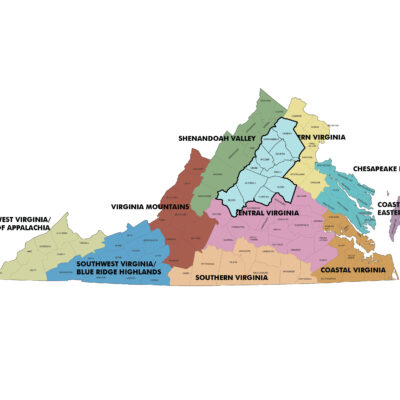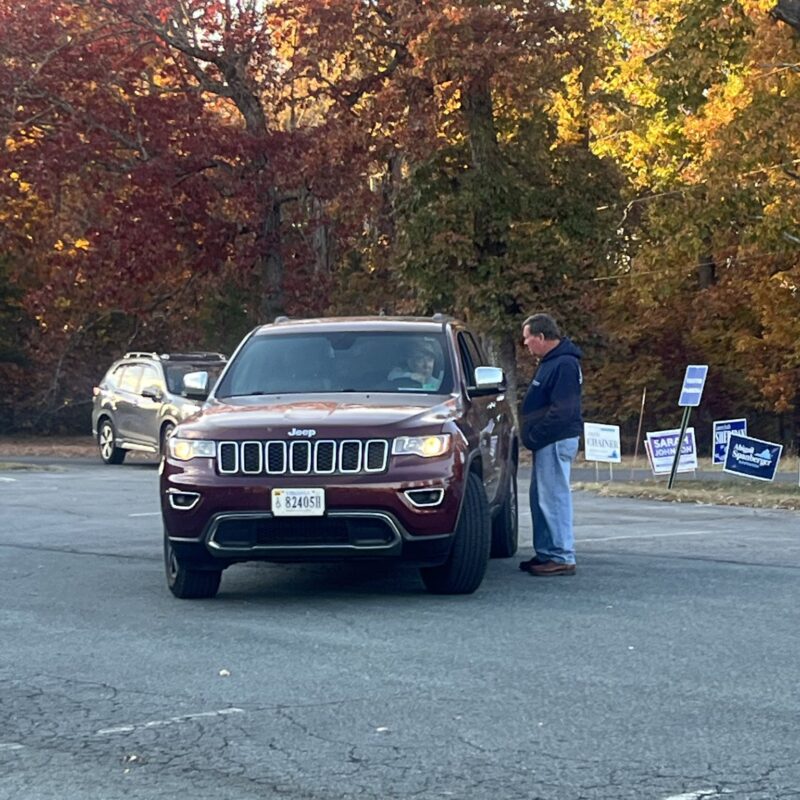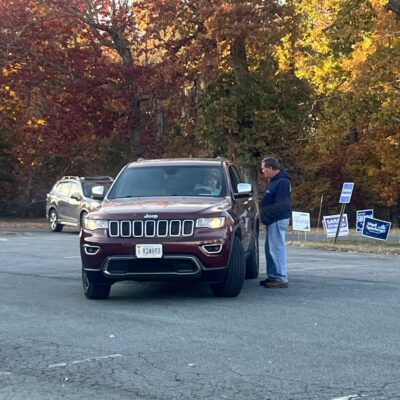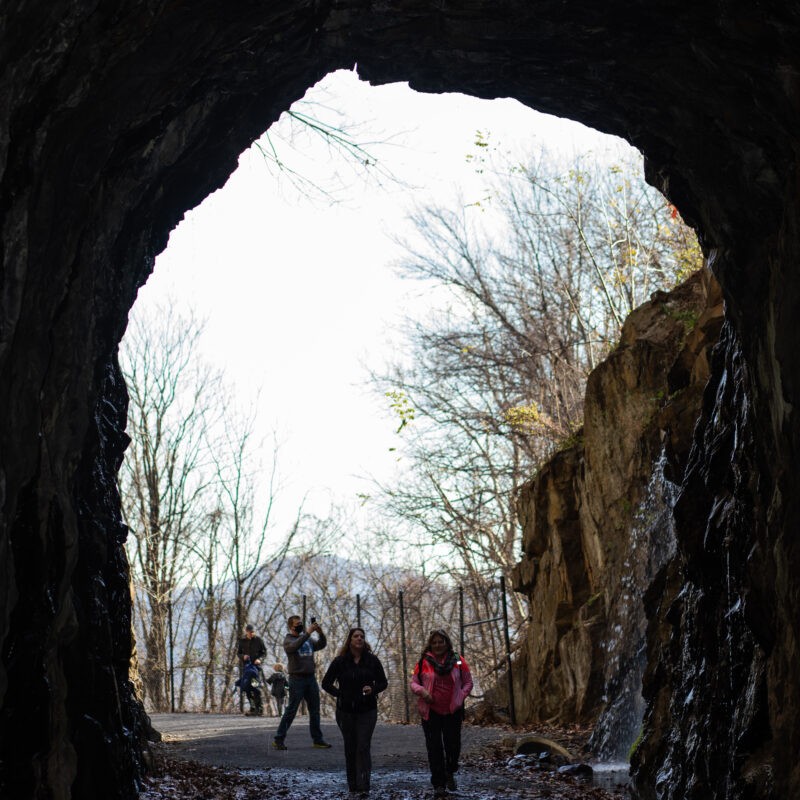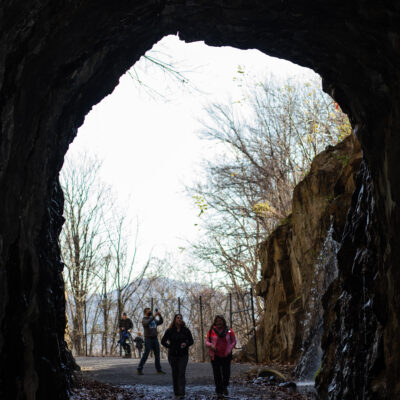The U.S. Department of Agriculture estimated that the Charlottesville region has lost close to 8 percent of its farmland in only five years. Between 2002 and 2007, 56,836 acres were lost. Across Virginia, more than half a million acres were lost, making it the largest decline in the last 20 years.
What is the role of the Board of Supervisors in preserving rural land and what would you do, specifically, to protect it?
JACK JOUETT DISTRICT
Dennis Rooker, (I)
(Incumbent)
One of the principal roles of the Board of Supervisors is to make land use decisions, including adopting and amending the Comprehensive Plan and ordinances, and approving or denying rezonings and special use permits. Over time these decisions have a profound effect on our rural areas.
|
Dennis Rooker |
Preservation of our rural land is recognized in our Board’s Strategic Plan as one of the principal goals of the County. Our Comprehensive Plan distinguishes between growth areas (5 percent of the County) and rural areas (95 percent of the County) and includes a goal to preserve and manage the County’s natural resources in order to protect the environment and conserve resources for future use. I have supported and will continue to support strategies which have resulted in: 1. 90,000 acres of land (20 percent) of the county being permanently preserved as parkland or under conservation easement; 2. the addition of more than 1800 acres of new parkland over the past 8 years; 3. the adoption of a Biodiversity Plan; 4. adoption of stream buffer and storm water ordinances which are among the most protective in the State; 5. the adoption of the best cell tower ordinance in the State to protect rural aesthetics; 6. adoption of a light ordinance to protect our night skies from inordinate light intrusion and 7. one of the State’s only groundwater protection ordinances.
We have adopted the “Cool Counties,” resolution undertaking to reduce carbon emissions by 80 percent over 50 years; reaching that goal will require that we preserve rural areas which provide much of the forest cover that enhances our air and water quality. Presently, more than 80 percent of the county is forested, and I support strategies to maintain our forested areas, such as land use taxation. I will support sensible changes to the Comprehensive Plan and to ordinances which will make it easier for farmers to market their products and increase the income from their land.
Albemarle County’s population grows by about 1,000 persons per year. Part of our strategy to protect the rural areas is to make our growth areas the places of choice for new residents to locate. I have been a strong supporter of master planning and of adopting and implementing the Neighborhood Model as a part of our Comprehensive Plan to provide for more pedestrian friendly, attractive, mixed use development in the growth areas. The result of this approach has been a significant reduction in the percentage of new development going into the rural areas.
SAMUEL MILLER DISTRICT
Madison Cummings, (D)
|
Madison Cummings |
I believe it’s a real national and local tragedy that this country and this county have lost so much farmland. I think it is imperative that we keep the family farmer viable. Several of the ways I would attempt to do that are: 1. Continue the land use tax relief program as presently constituted while encouraging family farmers to place their land in conservation easement. Land use tax relief is a valuable program which is under attack presently, although citizens don’t realize that the benefits of land use are not just rural protection, which is essential to maintaining our quality of life. This program also allows landowners like myself (my family owns 40 acres in North Garden) to keep the land from being developed because taxes would otherwise be too high to maintain it as open space. Developed land is infinitely more costly to fellow taxpayers because of the services required; this is somewhat offset by the tax revenue gained. If landowners are not able, because of the recent revalidation process ending on Dec. 5th, to justify that they have a legitimate agricultural, horticultural, or forestal enterprise on their land which ensures tax relief, they can place their land in an open space easement. Choosing that allows them to avoid the significant taxes which would otherwise accrue; 2. More aggressively fund the conservation easement (ACE) program, which just last week was defunded by another third because of a $1.77 million deficit in this FY10 budget, after the first quarter of the fiscal year. The ACE program budget has thus been cut by 2/3 in FY10. This decline needs to be reversed in future budgets; 3. Do a better job of educating our fellow citizens, especially our children, about where our food and other agricultural products come from and how important it is to promote local agriculture. This makes sense for energy-saving reasons because of transportation costs added to the cost of food and the need to conserve our fast-dwindling oil supplies. This would include supporting the Albemarle County Fair. I have been a member of the Ruritan Club in North Garden for 25 years. We have been intimately involved in the Fair, from putting up tents to serving on the Fair Board to selling tickets for the rides; 4. Finally, I would like to support finding a way for the Farm Bureau folks and the Food Hub folks to work cooperatively to all our benefits to encourage our educated population to buy local produce and meats. The Food Hub is an excellent idea, especially for our young families who are concerned about where some of our imported (and domestic, for that matter) food comes from. Perhaps the Board could support it, as a public-private “non-profit,” the same way we help to maintain our family farmers with land use taxation relief.
John Lowry, (I)
This question is most appropriate for Samuel Miller District of Albemarle County since we are rural in character. Albemarle’s Comprehensive Plan designates four places for growth in the county. None of the four growth areas is in Samuel Miller. Rural land as a topic brings to mind recent remarks on this subject by two knowledgeable sources. Chad Zakaib of Jefferson Vineyards closed a farming enterprise forum by saying young people increasingly will think farming is cool because people need to eat.
|
John Lowry |
The second person I heard recently speak about agriculture was Carl Tinder, President of the Farm Bureau. Naturally, Carl is a proponent of farming. His observation is: it is all a matter of scale. Farming is a business pure and simple. Larger scale makes for more chance of profit and sustainability of the farm enterprise. Smaller scale works, too, but costs must be lowered or sales prices need to be higher in order to be successful. Since Virginia statistics on farmers show the average farmer makes $15,000 a year with land assets of $250,000 (a 6 percent return), the key to preserving rural land is to raise the return by lowering capital cost, raising selling prices or both.
I see the biggest challenge to the Board of Supervisors is getting more agricultural land into Conservation Easements. An easement is a covenant on a deed to forsake development rights in perpetuity. Conservation Easements are available to any property owner (a 10-acre minimum). As I see it, were farmers and agricultural users to embrace easements, our society will be embracing a culture shift. Land is the major part of the farmer’s capital, of course, so by having an easement put on the land the owner permanently accepts a lower land value. It is a big monetary sacrifice. Once done, however, the annual return compared to a smaller capital base is higher. The Agricultural user of easements lowers the cost of capital to the farmer and raises the farmer’s standard of living. Another way to increase the farmer’s return is higher selling prices. In Albemarle County we are enjoying a boom on “buy fresh, buy local”. Premium prices are acceptable in this market and these raise the farmer’s standard of living, too. By lowering capital costs and raising selling prices the farmer benefits.
Albemarle has been a state leader in finding sources of money that go into Land Easement arrangements. Please notice I have left Land Use out of the equation of preserving rural land. That is because two thirds of the county is already in Land Use. There is not much more to expect from Land Use. What the future Board of Supervisors must do is find owners who will put their land in conservation easements. We (the Board) need to come up with several creative ways to spark family land owners to opt for conservation easements. If the BOS finds sources of funds to make easements, young cool farmers will arrest the decline in farmland.
Duane Snow, (R)
There are several reasons there has been a decrease in farmland over the past five years. First, farming is a tough business. It doesn’t have the fringe benefits of most businesses, such as paid sick leave, insurance programs and bonuses at the end of the year. In farming your work is never done. You are on call, so to speak, twenty-four seven. You are at the mercy of the weather for your success or failure. Too much or too little rain, early frost or late frost all affect the farmer. Farm equipment is expensive, fertilizer prices have tripled, plus the high fuel costs. There is the pressure of foreign markets. There are fences to mend, veterinary bills, insect virus diseases, and market prices all to consider. Land taxes are constantly increasing.
|
Duane Snow |
As a member of the Albemarle County Board I would promote the following to help the farmer and preserve rural land and protect it:
• I would keep the Land Use Tax Credit available to farmers
• Work with farmers to create a farmer’s market that would serve as a distribution center for individuals, restaurants, and local grocery stores.
• Promote farm and county activities to encourage appreciation of our rural areas. The way I would accomplish this would be working with the Farm Bureau.
When I was on the State Agriculture Council we funded a farmer’s market in rural Carroll County of Southwest Virginia. In talking with Frank Levering of Carroll County recently, he said the market was a great success in providing farmers with an outlet for their goods. By buying local, we build our community and help the farmer.
We all enjoy the beautiful farms and lush rolling hills in our area. The beauty we enjoy in this area is the result of hard work and diligent stewardship of our resources. I will work to preserve and maintain the beauty of Albemarle County. To do otherwise would be irresponsible.
RIO DISTRICT
Rodney Thomas, (R)
The years from 2002-2007 were a difficult period of unprecedented pressure to develop Albemarle’s rural areas. During this time period Albemarle lost 24 farms. If that trend continues Albemarle’s rural character would become a thing of the past. Demands to develop the rural areas have been significantly reduced in the last two years, aided by a considerable decline in real estate market. However, the Albemarle County Board of Supervisors must continue to be vigilant and do its part to help preserve open space.
|
Rodney Thomas |
The best way for the Board of Supervisors to preserve the rural area is the continuation of existing land use taxation. My opponent, David Slutzky, in a recent Daily Progress article, opined that we should consider eliminating the current land use taxation. That proposal would force all those currently in the land use program to either pay much higher taxes on open spaces or give up all development rights forever in government mandated conservation easements. This would compel many of the longest serving and best stewards of Albemarle’s rural areas to make a third choice—sell their land to those who could afford significantly higher property taxes. I am opposed to this scheme and would work to preserve the current land use program that has prevented even greater development of our open spaces. There have already been 76,000 acres of land in Albemarle that have been placed under voluntary conservation easements and I look for that to increase over the next four years. We should also continue with a fair and open use of the revalidation program to ensure landowners are in compliance with the existing land use rules.
There is some good news regarding the farmland in the Charlottesville region from 2002-2007 and that is the market value of crops and livestock has increased nearly 70 million dollars, which a 57 percent increase over the previous 5 year period. This is aided by the area’s growing local food movement which has helped many area farmers. As Rex Linville of the Piedmont Environmental Council has stated, “a profitable farm is going to preserve farmland.” As the local food movement expands Albemarle County government needs to do more to encourage it and thus help prevent the loss of more family farms.
One of the biggest threats to Albemarle’s rural areas is any proposed expansion of the growth area. I am opposed to any expansion of the growth area with one minor exception. That is one parcel on 29 North near Sam’s Club that would be needed for an extension of Berkmar Drive-project that would help reduce traffic congestion; my opponent and I are in agreement on the need for this change. I’m against any increases to the growth area proposed in Pantops and other parts of the county. As a life long resident of this area I have always valued Albemarle County’s rural beauty and I always will.
David Slutzky, (D)
(Incumbent)
Rural land preservation means different things to different people. For some, it means protecting the aesthetic benefits of the majestic vistas so prevalent throughout our view shed. For others, it means preserving the rural way of life enjoyed by families that have farmed Virginia for many generations. More recently, attention has been drawn to the abundant ecological systems that comprise our rural areas, and the immense value these natural resources provide to us and to future generations. I believe that the Board of Supervisors has primary responsibility for protecting the “commonwealth” and therefore must protect our rural areas for all of these reasons.
|
David Slutzky |
Rural area protection can take many forms. As local governments are responsible for land use policies, our Board must make policy choices in a manner that honors our intergenerational responsibilities. When we decide to allow for anything that might disrupt rural lifestyles, scenic views or natural resources, we must keep this greater duty in mind. Such policy choices include decisions like: to what extent we will allow for land to be developed in the rural areas, and what form might that development take. We need to consider the impact of any such development on families, on the ecology of the rural area, and to some extent, the aesthetics of the rural areas.
Since joining the Board, I have been a leading voice for rural preservation issues. I have advocated for rethinking our approach to land use policy by encouraging the county to inventory our ecological assets and assess their carrying capacity. I have actively pursued the integration of land use and transportation planning as well as transit improvements that enhance the livability of the growth area and therefore decrease development pressure on the rural area. I have also been a strong proponent for increasing the economic vitality of Albemarle: I supported having the county join the Thomas Jefferson Partnership for Economic Development and the Chamber of Commerce, and have worked to find creative, innovative ways to bring jobs to Albemarle and keep jobs in Albemarle. Encouraging a vibrant, thriving commercial tax base will reduce residential property tax burdens while still funding education, critical infrastructure and public safety needs.
Finally, I have a record of leadership on the Board on specific rural preservation issues. I have advocated for Conservation Easements, and I proposed a Transferrable Development Rights (TDR) program that could create a market mechanism allowing landowners to actually sell their development rights, while simultaneously preserving their land. I have also been looking into land use tax reform so that rural farmers can keep their land, while rural land speculators would have to pay their fair share of taxes.
Rural land preservation has always been very important to me, and I believe my record on the issue reflects a dedication to the issue and a willingness to engage all stakeholders and come up with innovative proposals to both preserve the integrity of Albemarle while also protecting property rights and preserving the wealth of landowners.






